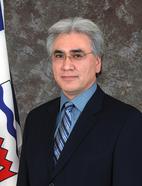Mr. Speaker, I rise on a personal matter under Rule 20(1). Yesterday our Member of Parliament, the MP for the Western Arctic, testified before the federal Standing Committee on Aboriginal Affairs and Northern Development. The committee is considering Bill C-530. The MP’s private member’s bill is to amend the NWT Act to change the GNWT borrowing limit.
I am concerned his comments did not reflect all of the information that I conveyed to him. For the record, Mr. Speaker, in a letter dated October 20, 2010, I told the Member of Parliament the GNWT would await the outcome of the federal review of territorial borrowing limits before determining what further actions might be necessary with respect to our borrowing limit.
Mr. Speaker, that was and is still the position of the GNWT. Thank you, Mr. Speaker.
---Applause
